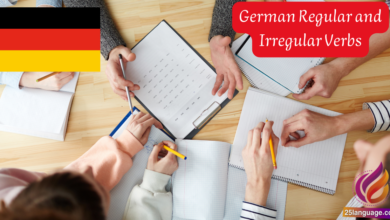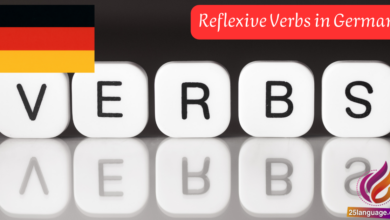Difference Between weil and denn

Understanding the subtle nuances of “weil” and ”denn” is essential for expressing thoughts clearly in German. while both can translate to “as,” they serve different purposes in a sentence. “Weil” introduces a dependent clause, adding depth to your reasoning, while “denn” connects ideas in a more straightforward manner. Grasping these distinctions will enhance your fluency and help you articulate your thoughts with confidence.Let’s dive in and unlock the secrets of these two conjunctions!
Exploring the Nuances of Weil and Denn in German
in German, both weil and denn are used to express the meaning of “because,” but their grammatical usage differs considerably. Weil is a subordinating conjunction,which means that it introduces a subordinate clause. this is vital because it causes the verb in that clause to move to the end.Such as:
- Ich gehe nicht ins Kino, weil ich müde bin.
(I am not going to the cinema because I am tired.) - Er hat das Essen nicht gekocht, weil er zu beschäftigt war.
(He didn’t cook the meal as he was too busy.)
Knowing this rule helps learners understand how to structure sentences correctly in German.
In contrast, denn is a coordinating conjunction, allowing it to connect two main clauses without altering the word order of either clause. This means that the verb remains in the second position in each clause. As an example:
- Ich gehe nicht ins Kino, denn ich bin müde.
(I am not going to the cinema, because I am tired.) - Er hat das Essen nicht gekocht, denn er war zu beschäftigt.
(He didn’t cook the meal, because he was too busy.)
This distinction is crucial for creating grammatically correct sentences and conveying the right meaning in conversations.
| German Example | Type | English Translation |
|---|---|---|
| Ich gehe nicht ins Kino, weil ich müde bin. | Subordinating (Weil) | I am not going to the cinema because I am tired. |
| Ich gehe nicht ins Kino, denn ich bin müde. | Coordinating (Denn) | I am not going to the cinema, as I am tired. |
| Er hat das Essen nicht gekocht, weil er zu beschäftigt war. | Subordinating (Weil) | He didn’t cook the meal because he was too busy. |
| Er hat das Essen nicht gekocht, denn er war zu beschäftigt. | Coordinating (Denn) | He didn’t cook the meal, as he was too busy. |
Understanding Cause and Effect: The Role of Weil and denn
Understanding the concepts of cause and effect in German involves the correct use of words like weil and denn, both of which mean “as” but serve different grammatical purposes. Weil is a subordinating conjunction, which means it introduces a subordinate clause and puts the main clause in a sentence second position. Such as:
- Ich bleibe zu Hause, weil ich krank bin. (I am staying at home because I am sick.)
in this sentence, “weil ich krank bin” acts as a subordinate clause that cannot stand alone. It explains the reason for the action in the main clause.
On the other hand, denn is a coordinating conjunction, meaning it connects two independent clauses without changing their order. It often translates more directly to “for” in english and implies a straightforward clarification rather than a causative relationship. As a notable example:
- Ich bleibe zu Hause, denn ich bin krank. (I am staying at home, for I am sick.)
Here, both clauses can stand alone, and the use of denn maintains the equal status of the two parts of the sentence. Understanding when to use each word is crucial for mastering the nuances of cause and effect in German.
Practical Strategies for Mastering Weil and Denn
In German, “weil” and “denn” are used to express reasons, but they serve different grammatical functions. “Weil” is a subordinating conjunction, which means it introduces a dependent clause and causes the verb to move to the end of that clause.For example:
- Weil ich müde bin, gehe ich früh ins Bett.
(Because I am tired, I go to bed early.) - Ich bleibe zu Hause, weil es regnet.
(I stay at home because it is raining.)
On the other hand, “denn” is a coordinating conjunction that connects two independent clauses and maintains the original word order. Such as:
- ich gehe früh ins Bett, denn ich bin müde.
(I go to bed early, for I am tired.) - Es regnet, denn ich bleibe zu Hause.
(It is indeed raining, for I stay at home.)
| German Example | Grammar Rule | English Translation |
|---|---|---|
| Weil ich müde bin. | Subordinating conjunction (verb at end) | Because I am tired. |
| Ich bleibe zu Hause, denn es regnet. | Coordinating conjunction (normal word order) | I stay at home, for it is raining. |
Clarifying Confusion: When to Use Weil and Denn in Conversations
In German, both “weil” and “denn” are conjunctions that translate to “as” in English, but they are used in different contexts, which can cause confusion for English-speaking learners. The key difference lies in the sentence structure they create. When using “weil,” the clause it introduces is subordinating; it means that the verb shifts to the end of the sentence. For example:
- Ich gehe nicht raus, weil es regnet.
- (I am not going out as it is indeed raining.)
In contrast, “denn” is a coordinating conjunction and does not change the sentence structure. The verb remains in the second position, making the sentence more straightforward. For example:
- Ich gehe nicht raus, denn es regnet.
- (I am not going out, as it is indeed raining.)
| German Example | Rule | English Translation |
|---|---|---|
| Ich bleibe zu Hause, weil ich müde bin. | Subordinating conjunction: verb at the end. | I am staying home as I am tired. |
| Ich bleibe zu Hause, denn ich bin müde. | Coordinating conjunction: verb in second position. | I am staying home, because I am tired. |
| Er kommt nicht, weil er krank ist. | Subordinating conjunction: verb at the end. | He is not coming because he is sick. |
| Er kommt nicht,denn er ist krank. | Coordinating conjunction: verb in second position. | He is not coming, as he is sick. |
To Wrap It Up
Herzlichen Glückwunsch, liebe Lernenden! ihr habt euch intensiv mit dem Unterschied zwischen “weil” und “denn” beschäftigt, zwei wichtige Konjunktionen, die eure Deutschkenntnisse bereichern werden.
Zusammenfassend lässt sich sagen, dass ”weil” einen kausalen Zusammenhang beschreibt und einen Nebensatz einleitet, während “denn” die Erklärung in einem Hauptsatz präsentiert. Denkt daran, dass “weil” häufig verwendet wird, um Informationen oder Gründe zu geben, während “denn” mehr um den Fluss des Gesprächs geht und oft in der alltäglichen Kommunikation genutzt wird.
jetzt,wo ihr diese Unterschiede kennt,ermutige ich euch,das Gelernte aktiv anzuwenden! Versucht in euren Gesprächen und beim Schreiben,”weil” und “denn” bewusst einzusetzen. macht kleine Übungen, indem ihr eigene Sätze bildet oder mit Freunden spricht. Ihr werdet sehen, wie viel leichter und fließender sich eure Deutschkenntnisse entwickeln!
Bleibt motiviert und neugierig. Jeder Schritt, den ihr macht, bringt euch näher an euer Ziel, fließend deutsch zu sprechen. Viel Erfolg und spaß beim Lernen!





























